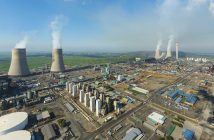- Public comments have been called by South Africa’s Minister of Energy, Mr. Jeff Radebe for regulations governing building energy performance.
- The new draft plans to introduce mandatory requirements for the display of energy performance certificates in non -residential buildings.
- The new draft also applies to organs of state and building owners to provide for the display and submission of energy performance certificates.
South Africa’s Minister of Energy, Mr. Jeff Radebe, has in terms of section 19 of the National Energy Act called for public comment the draft Regulations for the Mandatory Display and Submission of Energy Performance Certificates for Buildings, to be made under section 19(1 )(b) of the Act.
The proposed regulations will apply to any building owned and operated by an organ of state plus private building owners. All data must be submitted to a building performance register that will be administered by the South African National Energy Development Institute (SANEDI).
The draft defines energy performance as the net energy consumed in kilowatt-hours per square metre per year (kWh /m2 /a) to meet the different needs associated with the use of a building. The energy needs may include heating, hot water heating, cooling, ventilation, and lighting. This excludes measured or assessed energy consumed by garages, carparks and storage areas as well as energy consumed by outdoor services.
Building owners will be required to comply within two years of the new laws been implemented. Certificates must be displayed in reception or entrance areas. The certifications will be renewable every five years.
Author: Bryan Groenendaal











